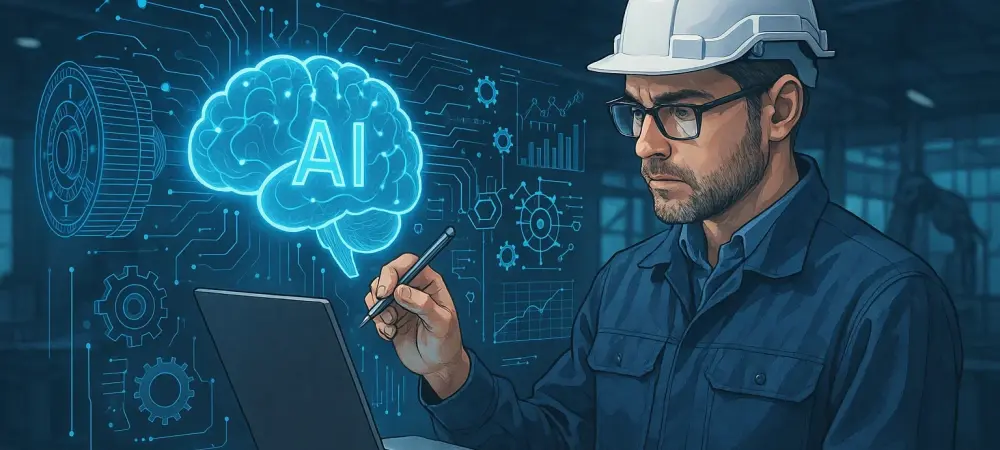In an era where technology and innovation drive industrial transformation, artificial intelligence (AI) is dramatically reshaping the engineering landscape. Current impactful scenarios show AI’s role is not to replace human engineers but to enhance engineering capabilities, fostering a collaborative dynamic that leads to unprecedented levels of productivity and creativity. The engineering industry, known for its precision and analytical thinking, finds itself at a crossroads where embracing AI is no longer optional but essential for staying competitive and relevant.
Industry Overview
The engineering sector is experiencing a rapid evolution as AI becomes a fundamental component of its operational framework. AI’s integration into engineering fields is revolutionizing processes, from design to execution, by introducing efficiency and innovative problem-solving mechanisms. The sector encompasses various segments, including civil, mechanical, electrical, and software engineering, each influenced differently by emerging technologies. Major industry players are investing heavily in AI research and development to maintain their edge in this dynamic environment. Additionally, the regulatory landscape is adapting to ensure ethical AI deployment, with standards evolving to encompass security, privacy, and compliance issues influencing how AI is incorporated into engineering practices.
Trends and Innovations
Emerging Trends in Engineering
Significant trends are reshaping the engineering industry as AI technologies are increasingly applied to optimize functions such as design automation, predictive maintenance, and supply chain logistics. AI’s analytical capabilities are enabling engineers to extract insights from vast datasets, allowing for more informed decision-making across projects. As consumer demand shifts, the industry is responding with smart infrastructure, energy-efficient systems, and sustainable solutions driven by AI enhancements. These trends are opening new avenues for innovation, paving the way for engineers to leverage technology in developing complex models and simulations that were previously unreachable.
Market Data and Future Projections
Market data indicates robust growth in AI-powered engineering solutions, with forecasts suggesting continued expansion in AI integration across various engineering applications. Performance metrics indicate an upward trajectory as organizations realize the advantage of AI in reducing operational costs and accelerating project timelines. Looking ahead, predictions point to even greater market penetration and diversification, with AI capabilities poised to disrupt traditional engineering methodologies, driving the industry toward greater efficiency and sustainability.
Challenges and Solutions
The engineering industry faces a host of challenges as it navigates the intersection of traditional practices and advanced AI technologies. Technical hurdles include interoperability between current systems and AI tools, which can hinder seamless integration and impact performance. Regulatory challenges emerge as governments worldwide strive to institute guidelines ensuring responsible AI use without stifling innovation. To address these complexities, the industry must prioritize continuous education, creating pathways for engineers to acquire new skills in AI technologies. Developing robust frameworks for collaboration between engineers and AI solutions will also be critical in overcoming these obstacles.
Regulatory Landscape
Regulatory considerations play a crucial role in AI deployment within engineering, influencing how the industry adopts new technologies. Stringent regulations concerning data security, ethical AI use, and compliance standards provide a blueprint for organizations integrating AI into their operations. Compliance with these evolving regulations ensures that AI applications are not only innovative but also safe and ethical, protecting stakeholders’ interests. As the regulatory environment continues to evolve, engineers must remain vigilant, adapting to changes to ensure that their AI implementations align with legal requirements.
Future Directions
The engineering industry’s future will be defined by its ability to adapt to emerging AI technologies and market disruptors. As AI continues to evolve, potential disruptors such as quantum computing and blockchain technology may further influence engineering practices, providing new opportunities for innovation. Consumer preferences are shifting toward eco-friendly and cost-effective solutions, driving demand for AI-driven advancements in energy, automation, and infrastructure. The industry must balance innovation with regulatory compliance, ensuring that global economic considerations are also accounted for in its progress.
Conclusion and Recommendations
In summary, the engineering industry is firmly on the path toward transformation as AI fosters collaboration between machines and engineers. Beyond enhancing existing capabilities, AI presents opportunities for engineers to redefine the scope of their work, challenging them to acquire expertise in new technologies. As the industry reflects on AI integration’s implications, stakeholders must focus on education and developing strategies that underscore innovation and security. Pursuing AI-driven projects with sustainable and ethical frameworks will be essential to harnessing the full potential of AI in engineering, driving future growth and investment in this ever-evolving landscape.

